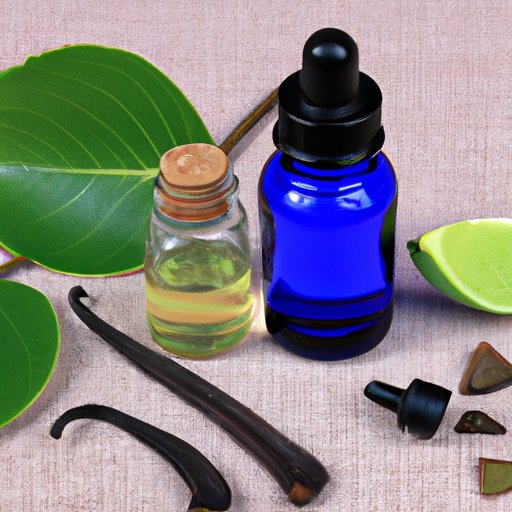5 Natural Remedies to Soothe Swollen Lymph Nodes in the Neck
If you’ve ever had swollen lymph nodes in the neck, you know how uncomfortable and worrisome they can be. Lymph nodes are part of the immune system and help fight off infections and diseases, but when they become swollen, it usually means that something is wrong. Swollen lymph nodes in the neck can be caused by a variety of factors, such as bacterial or viral infections, autoimmune disorders, cancer, or allergies.
While conventional treatments for swollen lymph nodes may include antibiotics, pain relievers, or surgery, some people prefer to try natural remedies that are gentler on the body and may have fewer side effects. Here are five natural remedies that can help soothe swollen lymph nodes in the neck:
1. Apply Warm Compresses
One of the simplest and most effective natural remedies for swollen lymph nodes in the neck is applying warm compresses. The heat from the compress can help to increase blood flow, reduce inflammation, and relieve pain. Here’s how to make and use a warm compress:
- Fill a clean, soft cloth with hot water. You can also add a few drops of essential oil, such as lavender or tea tree, for added benefits.
- Squeeze out the excess water and apply the cloth to the affected area.
- Leave the compress on for about 10 to 15 minutes.
- Repeat several times a day, as needed.
2. Use Essential Oils
Essential oils are highly concentrated plant extracts that can be used to treat a variety of health issues, including swollen lymph nodes in the neck. Some essential oils have anti-inflammatory and pain-relieving properties that can help reduce swelling and discomfort. However, it’s important to use essential oils safely and appropriately, as they can be potent and may cause skin irritation or other adverse reactions if used improperly. Here are some tips for using essential oils:
- Choose essential oils that are known to be safe and effective for reducing inflammation and swelling, such as frankincense, peppermint, or chamomile.
- Do not ingest essential oils or apply them directly to the skin without diluting them first with a carrier oil, such as coconut or almond oil.
- You can use essential oils through aromatherapy by adding a few drops to a diffuser or inhaler, or by inhaling directly from the bottle.
- You can also use essential oils topically by adding a few drops to a carrier oil and massaging into the affected area.
3. Try Herbal Remedies
In addition to essential oils, there are several herbs that are believed to help reduce lymph node swelling and support the immune system. Here are some examples:
- Echinacea: This herb is commonly used to prevent and treat colds, flu, and other infections. It can also help reduce lymph node swelling and inflammation.
- Cleavers: This herb is known for its lymphatic system support and is used to treat swollen lymph nodes, skin conditions, and urinary tract infections.
- Calendula: This herb has anti-inflammatory and antiseptic properties and is often used topically to reduce swelling, soothe skin irritation, and promote wound healing.
You can find these herbs in various forms, such as teas, tinctures, capsules, or topical creams. However, it’s important to consult with a healthcare provider or herbalist before using any new herbs, as they may interact with medications or have contraindications for certain conditions.
4. Adjust Your Diet
Another way to support the immune system and reduce inflammation is through a healthy diet. Eating a variety of nutritious foods can provide the body with vitamins, minerals, and antioxidants that can help fight infections and reduce lymph node swelling. Here are some dietary tips:
- Eat plenty of fresh fruits and vegetables that are high in vitamin C, such as oranges, strawberries, broccoli, and bell peppers.
- Include leafy greens, such as spinach, kale, and Swiss chard, that are rich in chlorophyll and other nutrients that support the lymphatic system.
- Avoid processed foods, fried foods, sugary drinks, and allergenic foods that may promote inflammation and slow down the healing process.
5. Practice Self-Care
Finally, self-care is crucial for managing lymph node swelling and improving overall health and well-being. Here are some self-care practices to consider:
- Practice stress-reducing techniques, such as yoga, meditation, or deep breathing, to calm the nervous system and boost immune function.
- Get enough sleep and rest, as sleep is essential for cellular repair and immune support.
- Avoid smoking, excessive alcohol consumption, and other harmful habits that can weaken the immune system and exacerbate lymph node swelling.
Remember that natural remedies are not a substitute for medical advice or treatment, especially if your symptoms persist or worsen. If you have a fever, severe pain, or other worrisome symptoms, seek professional help right away. However, these natural remedies can complement conventional care and help promote healing and wellness.
